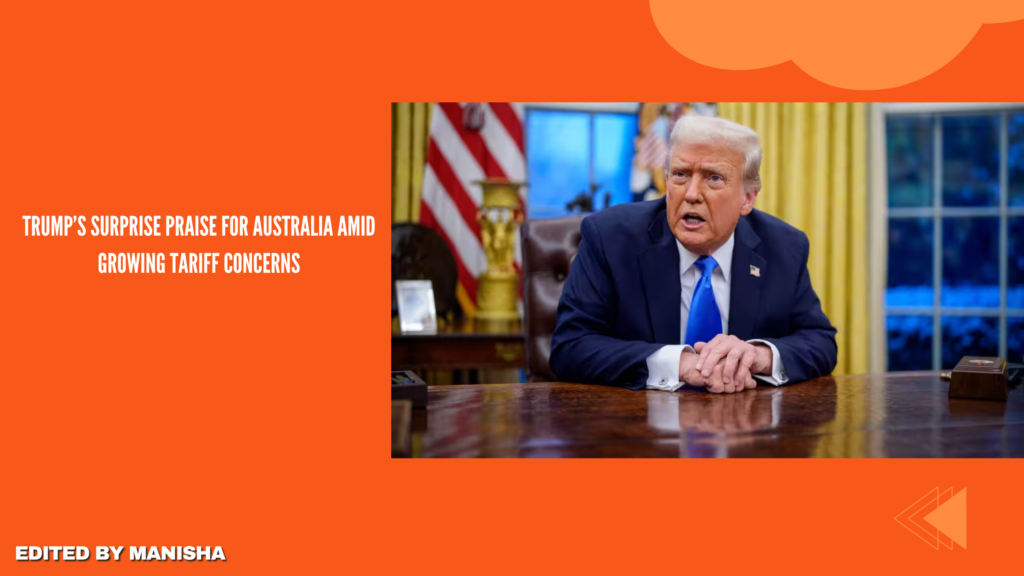
During a recent White House event, U.S. President Donald Trump briefly praised Australia, sparking hopes that he may grant an exemption to Australian exporters from upcoming tariffs.
Trump made the comments during a Black History Month reception on Thursday, where golf legends Tiger Woods and Australian golfer Adam Scott, along with PGA Tour Commissioner Jay Monahan, were in attendance. The trio had previously met with Trump and LIV Golf Chairman Yasir Al-Rumayyan at the White House to discuss resolving the ongoing rift between the two professional golf organizations.
Trump began by thanking Woods for attending and then acknowledged Scott, saying, “Adam is, as Tiger will tell you, one of the greatest players and one of the great modern players. Even though he doesn’t quite come from our country, he sort of does, right? He’s here a lot. He comes from another nice place like Australia, and they’ve been very good. Very, very good to us.”
This praise of Australia comes amid concerns about Trump’s proposal to introduce “reciprocal tariffs” on various countries, including allies. The tariffs, which are set to take effect in March, are aimed at raising revenue and addressing trade imbalances. The Australian government is particularly concerned about potential tariffs on steel and aluminum imports and has been working to secure an exemption similar to the one granted during Trump’s first term.
Treasurer Jim Chalmers expressed concerns last week that these tariffs could lead to inflationary pressures and hinder economic growth in Australia. The Reserve Bank of Australia (RBA) has acknowledged that while the tariffs will have some impact on Australia’s economy, particularly its GDP, the effect will likely be “relatively small.”
RBA Assistant Governor Sarah Hunter explained that the central bank has already factored the potential impact of the U.S. tariffs into its economic forecasts. She noted that Australia’s trade patterns are different from those of other nations, which may cushion the effects. While the tariffs may disrupt economies in the short term, Hunter pointed out that Australia’s lower tariffs and trade barriers, coupled with the flexibility of the exchange rate, could offer a buffer.
Though the full impact on inflation remains uncertain, the RBA’s governor cautioned that the economic outlook is still marked by unpredictability and potential challenges.